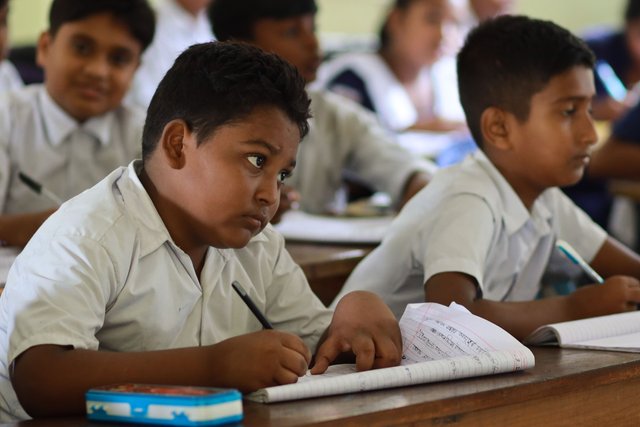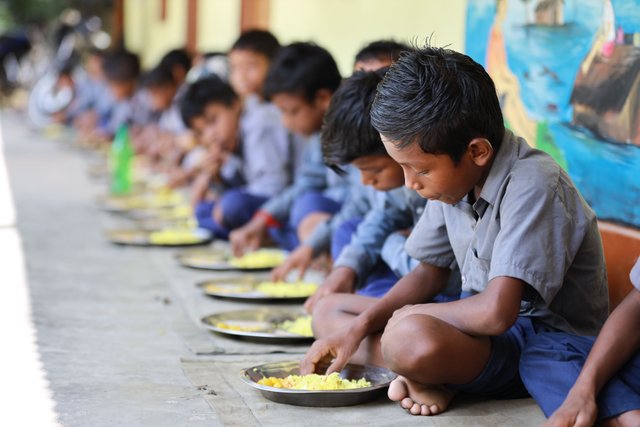It is important to ensure that economic development translates into ease of access to nutrition and education for children from socioeconomically weaker sections. Hunger should not serve as a barrier to education for these children, keeping them locked in a cycle of poverty.
The PM POSHAN Abhiyaan (formerly known as the Mid-Day Meal Programme or MDM Programme) is one of the best polices of the Government of India to promote education of children belonging to families with limited opportunities. On 28 November 2001, the Supreme Court of India passed a mandate that said: “We direct the state governments/union territories to implement the Mid-Day Meal Scheme by providing every child in every government and government-aided primary school with a prepared mid-day meal.”
As a result, every school day, students in government and government-aided schools are provided free, wholesome meals. There is an improvement in the nutritional and educational status of children thanks to the PM POSHAN Abhiyaan.
This programme impacts a large number of children in India thus supporting their right to nutrition and education that forms an integral part of right to life.

According to a new study by researchers at the International Food Policy Research Institute (IFPRI) that was published in the science journal Nature Communication: “Findings from previous evaluations of India’s MDM scheme have shown a positive association with beneficiaries’ school attendance, learning achievement, hunger and protein-energy malnutrition and resilience to health shocks such as drought—all of which may have carryover benefits to children born to mothers who participated in the programme.”
Further, the study also suggests a potential pathway through which school feeding programmes, such as PM POSHAN, may have inter-generational effects on child nutrition outcomes. It found that investments made in school meals in previous decades were associated with improvements in future child linear growth.
The study added: “Our findings suggest that intervening during the primary school years can make important contributions to reducing future child stunting, particularly given the cumulative exposure that is possible through school feeding programmes.”

The objectives of the PM POSHAN Abhiyaan
• Improving the nutritional status of children studying in all government and government-aided schools, thus helping in their physical, social, economic and cognitive growth.
• Encouraging children from families with limited resources to attend school more regularly and help them concentrate on academics and other co-curricular activities.
• Improving the enrolment and attendance rates in schools and decreasing the number of dropouts.
• Similarly, a well-organised school lunch programme can be used as an opportunity for children to socialise among their peers. It helps children to break the barriers of caste and class.
The PM POSHAN Abhiyaan or MDM Programme supports a child’s overall development. After realising the importance of these meals, many NGOs in India started supporting the Government of India to implement this scheme on a larger scale.
However, continuous active monitoring, enhancement of resources for nutrition programming and micro-level participatory planning as well as monitoring are necessary to achieve progress towards a malnutrition-free India.
By supporting NGOs that feed children, you also become eligible to gain tax exemption on every contribution you make.
Help gift healthy childhood and bright futures to children with your support.